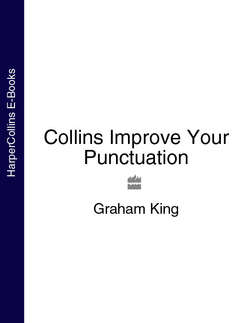Читать книгу Collins Improve Your Punctuation - Graham King - Страница 18
Correct Comma Placement
ОглавлениеDespite their faulty construction, at least the meaning of those offending sentences was clear. That, however, can’t be said of the following group of miscreants where commas, or the lack of them, result in ambiguity.
| Do we mean | They were sick and tired of the seemingly endless journey. |
| or … | They were sick, and tired of the seemingly endless journey. |
| Do we mean | Brenda and Ian didn’t fall in love because they liked their privacy too much. |
| or … | Brenda and Ian didn’t fall in love, because they liked their privacy too much. |
| Do we mean | At the Coronation, she heard, many of the guests had to stand for over six hours. |
| or … | At the Coronation she heard many of the guests had to stand for over six hours. |
| Do we mean | My son Frederick invented the whoopee cushion. |
| or … | My son, Frederick, invented the whoopee cushion. |
All four examples here are slightly subtler versions of the following old chestnuts:
The deer spun an arrow through its heart.
The deer spun, an arrow through its heart.
To be honest, cashiers don’t go home late.
To be honest cashiers, don’t go home late.
But to return to the four sets of alternatives. In the first, the simple addition of a comma after sick alters the meaning of the sentence dramatically. Without the comma the travellers are merely ‘fed up’, but with the comma they are in a far worse state.
In the case of Brenda and Ian, the first sentence could imply that Brenda and Ian did fall in love, but not for the reason that they liked their privacy. With a comma after love, however, it is clear that their budding relationship foundered because they were protective of their privacy.
At the Coronation, the sentence with the two commas suggests that she may or may not have been present at the event but had heard anyhow that guests had to stand for over six hours. The sentence without the commas leads us to believe – although it is not absolutely clear – that she was
